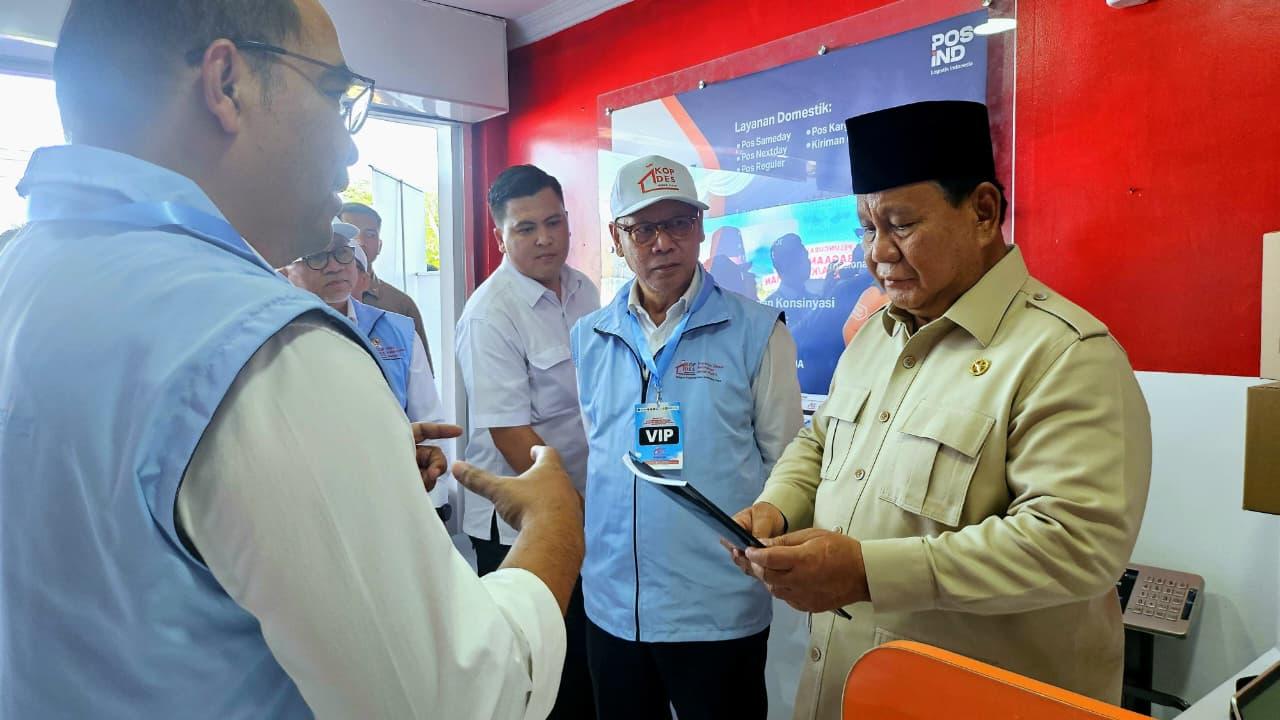Pos Indonesia Supports the Merah Putih Village Cooperative to Build an Efficient Logistics Ecosystem

Bandung, September 3, 2025 – PT Pos Indonesia is committed to supporting the growth of a logistics ecosystem extending to remote villages through the Merah Putih Village/Sub-district Cooperative (KDMP). This logistics ecosystem is expected to drive more efficient logistics costs.
This commitment emerged during a webinar titled "Building Merah Putih Village/Sub-district Cooperatives through Postal Agents" held on Wednesday (September 3, 2025). Pos Indonesia's Director of Business Development & Portfolio Management, Prasabri Pesti, was present. The event took place online via Zoom and was attended by hundreds of participants from various regions.
According to Prasabri Pesti, KDMP is a government priority program supported by Presidential Instruction Number 9 of 2025. The President targets the establishment of 80,000 village/sub-district cooperatives throughout Indonesia. Currently, there are approximately 15,000–16,000 Merah Putih Village Cooperatives.
"Pos Indonesia will play a crucial role in the KDMP ecosystem, particularly in logistics. Postal agents serve as a gateway for cooperatives to function like post offices in villages or sub-districts," explained Prasabri.
He emphasized that postal agents in KDMPs have a dual function. First, they act as courier service points for people who want to send packages, letters, or documents. Second, they act as active partners who can proactively assist local MSMEs in delivering products to consumers and marketplaces.
"By becoming a postal agent, a cooperative automatically becomes a post office. People can send goods, buy stamps, pay electricity and telephone bills, and even provide financial services—all of which can be done through KDMP," he added.
According to him, Pos Indonesia has divided the implementation of KDMP's logistics support into three phases. The first phase includes providing logistics consultation, goods distribution, warehousing, and support for social assistance distribution and market operations. Postal agents are crucial in this phase because they directly address community needs.
The second phase will expand the role of KDMPs to the secondary distribution level, including transportation management through the Transport Management System and warehousing management with the Warehouse Management System.
"All of this is so that cooperatives can manage logistics more professionally, efficiently, and measurably," explained Prasabri.
The third phase is aimed at bringing village cooperatives to a wider market, including going global through integration with the Pos Aja MSME platform and opening digital storefronts for superior village products.
According to Prasabri, logistics challenges remain a major obstacle for many businesses in Indonesia. High distribution costs often make product prices uncompetitive. "This is where Pos Indonesia comes in, acting as a partner and logistics consultant to help cooperatives run their businesses more efficiently," he said.
This webinar is the opening of a series of webinars that will be held regularly. Each session will discuss strategic themes, ranging from Postal Agent management, warehousing, distribution, and digital marketing strategies.
With Pos Indonesia's support, village/sub-district cooperatives are expected to become not only savings and loan institutions or distributors of basic necessities, but also modern logistics service centers connected to 4,800 post offices throughout Indonesia and 228 countries worldwide.
"KDMP is a major movement to revitalize cooperatives in Indonesia. Pos Indonesia is ready to assist them so that they not only survive but also grow into competitive drivers of the village economy," concluded Prasabri.
Meanwhile, Fajar Gustaman, a Postal Agent manager who successfully built a business from agency services with a turnover of up to IDR 400 million, was also present.
On that occasion, Fajar shared his success story as a Postal Agent. He explained how agency services can generate significant income for the business he manages.
"Postal Agents are not just courier services, but can also be a driver of the local economy. The income potential for cooperatives is also very promising," said Fajar.
In addition to the material provided by the speakers, the webinar also opened up an interactive discussion space. The more than 600 participants were able to ask questions directly about the technical aspects of Postal Agent management, the potential income for cooperatives, and potential business models for future development.
Pos Indonesia is also collaborating with the University of Logistics and International Business (ULBI) in this program. This collaboration is expected to strengthen academic aspects, research, and mentoring in logistics development at KDMP.


